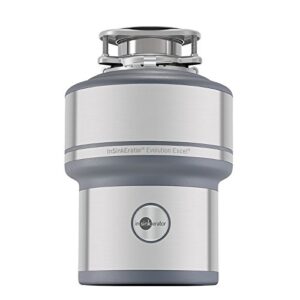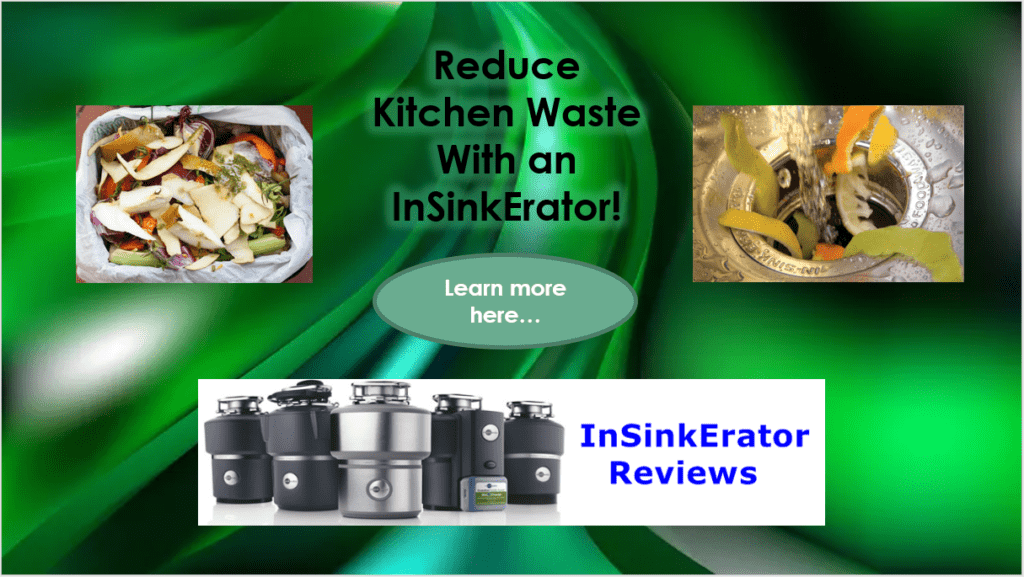Today we will explain how one of the best ways to reduce kitchen waste is with an InSinkErator garbage disposal!
According to data provided by the Australian government, food waste costs the Australian economy $20 billion a year. Over 5 million tonnes of food will end up in a landfill. This wasted food is enough to fill 9,000 Olympic-sized swimming pools.
Each year, one out of every five bags of shopping is effectively thrown away, equating to $3,800 in food per home. Food waste accounts for about 35% of the average home garbage and significantly produces greenhouse gases, particularly methane.
It's Time to Get Tough on Scraps and Reduce Kitchen Waste!
Australia's waste management system is mainly reliant on landfills. In fact, landfills will receive the vast bulk of non-recycled garbage. According to estimates, each family generates about 1.5 tonnes of waste every year. And over half of all home garbage (47 percent in 2009–2010) is organic, notably food scraps.
The issue is that food waste disposed of in landfills quickly decomposes and creates methane. This greenhouse gas is at least 21 times more detrimental to the environment than carbon dioxide. On the other hand, methane is seen as a valuable source of energy if it can be trapped.
Food waste is ground and delivered to a wastewater treatment facility via the sewage system, containing 70% water on average. Organic waste is treated at these treatment plants. This implies that food waste may be recycled. In many cases, the methane gas produced can be transformed into useable energy to power homes and businesses at properly equipped wastewater treatment plants. This is made feasible by food waste disposed of.
Repurpose Food Waste by Composting
Many people already reduce kitchen waste through composting. Composting is a vital aspect of waste management. Still, it is not an option for many individuals who live in high-rise flats. Food waste disposers are also meant to help individuals who regularly compost. A waste disposal unit will allow them to dispose of bones, animal feces, and other organic stuff that isn't suitable for compost beds.
The environmental effect of a food waste disposer is modest, despite using running water and power. Disposers utilize less than 1% of a household's total water use (about the same amount of water per day as one toilet flush) and cost less than $1.50 per year in power.
All of this adds up to a triumph for the environment as well as a step forwards for the modern Australian kitchen.
Is it cost-effective to use an InSinkErator garbage disposal for food waste?
 The advantages of a food waste disposer are immediately apparent, with a realized decrease in time and effort spent handling food waste. An InSinkErator garbage disposal also does not require heavy energy usage.
The advantages of a food waste disposer are immediately apparent, with a realized decrease in time and effort spent handling food waste. An InSinkErator garbage disposal also does not require heavy energy usage.
Even the Evolution 250, our most powerful machine, utilizes just 5 liters of water per person every day. Studies and data tell us that the average UK household uses 349 liters per day. The identical unit consumes 2 to 3 kilowatt-hours of power each year, compared to a household average of 3000 to 4000 kilowatt-hours.
A high-quality food waste disposer such as the InSinkErator Evolution Excel (pictured) is a genuinely worthy investment. It is an efficient appliance and will make your kitchen more streamlined and enjoyable to cook and dine in.
What is the function of a kitchen waste disposer?
A small, round, and mighty machine that fits neatly in the cabinet or beneath your kitchen sink. A food waste disposer may be simply connected to your current plumbing system. It grinds solid food waste into tiny bits that flush your wastewater system like anything else, taking food waste from your hands completely.
Your kitchen will be transformed with a food waste disposer! There will be no more unattractive and odorous garbage, food residue sprayed on the bin lid, or searching for that fork you dropped while scraping your plate.
You'd be excused to think that food waste disposers are a revolutionary new development because they're so efficient and straightforward. We've been creating food waste disposers since we first came up with the concept over 80 years ago at InSinkErator. Our premium models are built in the United States with the type of dependable, high-quality engineering that distinguishes us from the competition.
At one end, the food waste disposer attaches to your plughole. On the other, it connects to your wastewater pipe. This permits water and other liquid waste to travel through it undisturbed, as it would in the sink. It also means that solid food may be readily thrown down the drain, out of sight, out of mind, and ready to be crushed down at the push of a button.
How does a garbage disposal system reduce kitchen waste?
It only requires power and a wastewater line to connect to. Scrape your food waste down the specially adapted plughole after turning on the tap and turning on the machine. A cleverly engineered grinding system breaks down food as it enters the main chamber, which is free of blades and sharp pieces, into flushable particles.
 So, how does an InSinkErator Food Waste Disposer fit into this environmental narrative?
So, how does an InSinkErator Food Waste Disposer fit into this environmental narrative?
Simply said, it helps to safeguard the environment by preventing food from ending up in landfills. Why is this beneficial?
Methane from decaying food leftovers is caught and not discharged into the atmosphere thanks to the garbage disposal and existing plumbing system. Methane is a proven contributor to CLIMATE CHANGE and is 21 times more hazardous than CO2.
Food decomposition can result in leachate, which can contaminate groundwater.
Taking Care of the Environment
Turning food waste into sustainable energy is a win-win situation for the environment! Food scraps ground by a disposer is delivered to a Waste Water Treatment Plant (WWTP) for processing via the existing sewage system. An Anaerobic Digester collects biogas methane from broken-down food leftovers at acceptable Wwtps. This gas is then compressed and utilized to create electricity and heat on-site. Some power stations feed excess electricity back into the system.
Managing food wastage is a source of frustration for all of us. The stench, the difficulty, and the changes in garbage pickup in the area. We are grappling with waste management at a macro level due to the potential cost consequences. A food waste disposer attaches to the kitchen sink and quickly disposes of all food leftovers.
It's simple, fast, and, most importantly, it keeps food waste out of landfills and helps us reduce kitchen waste!
The post Reduce Kitchen Waste With an InSinkErator Garbage Disposal! appeared first on https://gqcentral.co.uk



